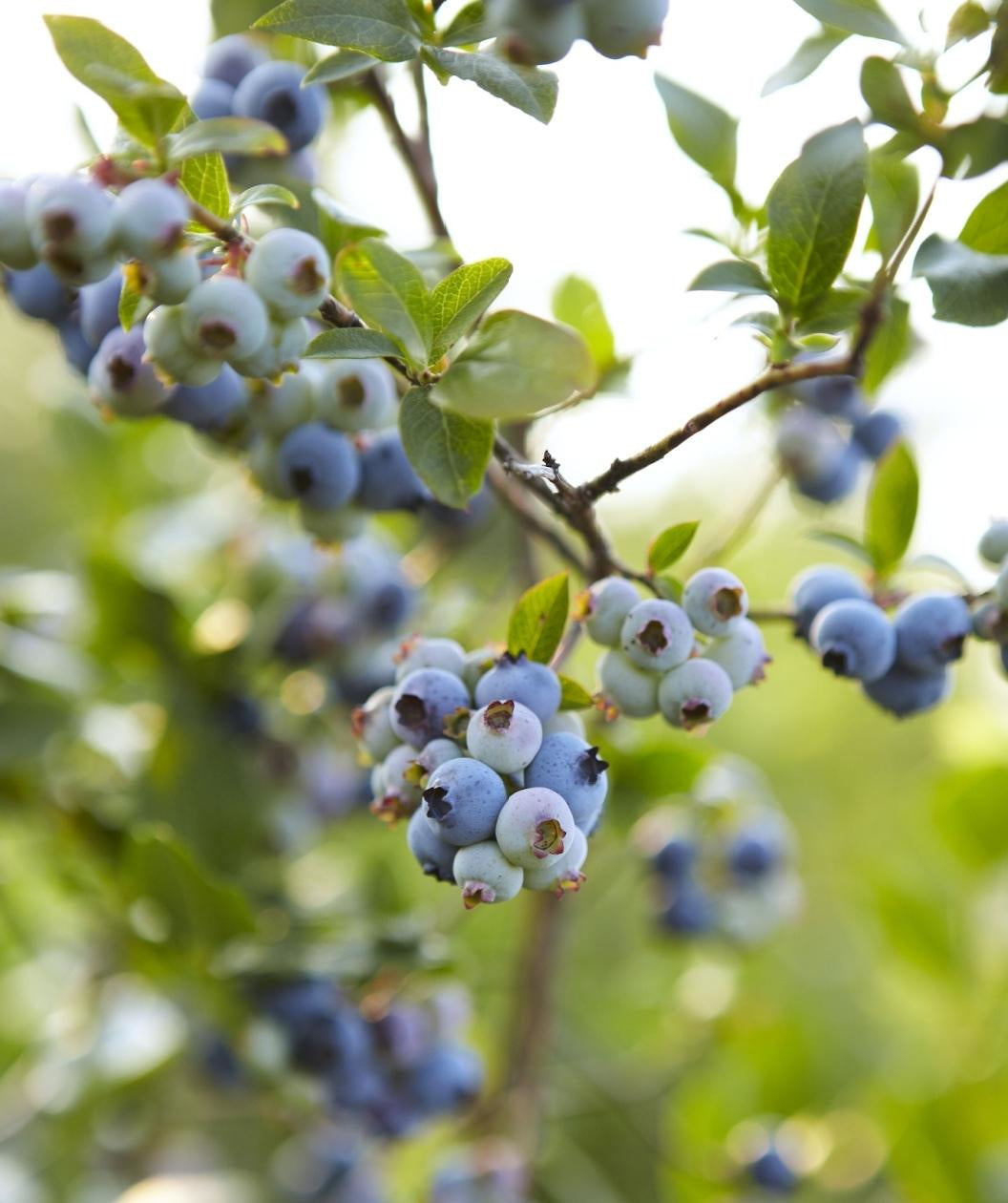TASTY BERRIES ON A COMPACT, VIBRANTLY COLORED SHRUB
FEATURES:
- In late spring, sweet pink blooms emerge before transitioning to blueberries
- Berries are large, sweet and very juicy
- Wonderful when used in baking, cooking, preserves or eating fresh
- Considered to be one of the sweetest blueberries grown
- Bluish-green foliage turns burgundy tones in fall
- Self-pollinating but when planted with others, will yield a larger harvest
- Hand Selected, Fresh from our Grower
- Ships in a plant-safe designed box
Growth Facts
- Hardiness Zone: 6-10
- Mature Height: 3-4' tall
- Mature Width: 3-4' wide
- Exposure: Full Sun
- Spacing: 3-4' apart
TASTY BERRIES ON A COMPACT, VIBRANTLY COLORED SHRUB
FEATURES:
- In late spring, sweet pink blooms emerge before transitioning to blueberries
- Berries are large, sweet and very juicy
- Wonderful when used in baking, cooking, preserves or eating fresh
- Considered to be one of the sweetest blueberries grown
- Bluish-green foliage turns burgundy tones in fall
- Self-pollinating but when planted with others, will yield a larger harvest
- Hand Selected, Fresh from our Grower
- Ships in a plant-safe designed box
Growth Facts
- Hardiness Zone: 6-10
- Mature Height: 3-4' tall
- Mature Width: 3-4' wide
- Exposure: Full Sun
- Spacing: 3-4' apart
Why plant Bountiful Blue® Blueberry?
Bountiful Blue is right! Not only does this plant offer legitimate blueberries, but out of all the varieties of blueberries out there, we have come to love this particular species for a few reasons. Just as the name states, this plant is very bountiful with flowers, fruit, and foliage - truly offering the full package. With the start of spring, we see a radiant display of pink-blushed flowers followed by delectable blueberries come midsummer. With the end of the fruiting season and the coming fall chill, we welcome a luxurious burgundy foliage to end the year.
Fun fact we bet you weren't aware of - all blueberries known today worldwide were actually cultivated by Elizabeth White from New Jersey in early 1911.
How to use Bountiful Blue® Blueberry in the landscape?
Plants well with Magnolia, Hydrangea, Flowering Currant and many others. We would love to see how you chose to cultivate your new Bountiful Blueberry bush, although if you need some ideas we've got your back. This Blueberry does phenomenally as a hedge or contained as a small border for your garden. Surprisingly, this plant is also capable of being grown in a container and still produces its fruits!
Planting Zones
Hardiness Zone: 6-10
How To Plant Bountiful Blue® Blueberry
When planting blueberries, the more the merrier we always say! Although one will do, planting even just one more somewhere close by can grant you a wonderful harvest. While being self sufficient, bees and other pollinators will amp up your production of these tasty berries.
How To Water
For best fruit production, this plant does have some interesting watering requirements. When not producing fruits normal watering, so your weekly 'garden walk-through' kind of watering works just fine. When this plant does start its fruit production, the is when things get a little more intricate. Depending on the type of soil you are working with, you want to keep your fruiting plant well watered but not saturated. Over watering of your plant will cause larger fruit yes, but they will lack the taste you are looking for.
How To Fertilize
Established plants should be fertilized every 2-3 years to maintain best foliage and fruit production. Incorporate Elements Starter Plant Food granular form into the soil when planting. If planting in spring or summer, start fertilizing late fall using Elements Starter Plant food granular form on an annual basis each fall. Continue this for the first three years to get your plant well established.
How To Prune
Like other Blueberries during the first few years pruning is only required to remove any dead, weak, or diseased branches. Once established, we recommend pruning annually in early spring, while still in dormancy.





